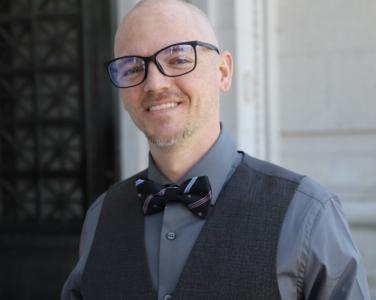Johnny Smith L&S Social Sciences
Care-Control Imbalance: Probation Officer Duality & Client Engagement
Mass incarceration is a phenomenon well studied among academics and policymakers. Less emphasized is its community-based byproduct: mass probation. Contemporary shifts in cultural attitudes and policy circles increasingly emphasize the need to reduce incarcerated populations. Although releasing people from jails and prisons is a vital step in the right direction, it fundamentally entails adding to the already swelled population under community correctional control. Given the decades-long oscillating landscape, a tension persists among agents pivoting with policy: occupational duality within the probation supervision sector. Johnny’s research interest focuses on this duality—probation officers as both enforcers of court orders (control) and as facilitators of rehabilitation (care)—and how they reconcile these two competing roles. Having interrogated this phenomenon by interviewing and analyzing the perspectives of 16 probation officers, Johnny’s findings reveal that the control model is central to probation strategies—tipping the scales of treatment. Widening his scope of interest to now include interviews with clients/probationers, Johnny’s research asks How does the imbalance between probation officers’ use of care and control affect how probationers engage supervision?
Message To Sponsor
I want to extend my deepest thanks and appreciation to the philanthropists funding my passion and research. Were it not for the generosity of your donations, invaluable student research may never get properly conceptualized and conducted. I thank you for providing me the opportunity of proper programmatic structure and guidance to investigate what is important to me, and what should be important to all of society.